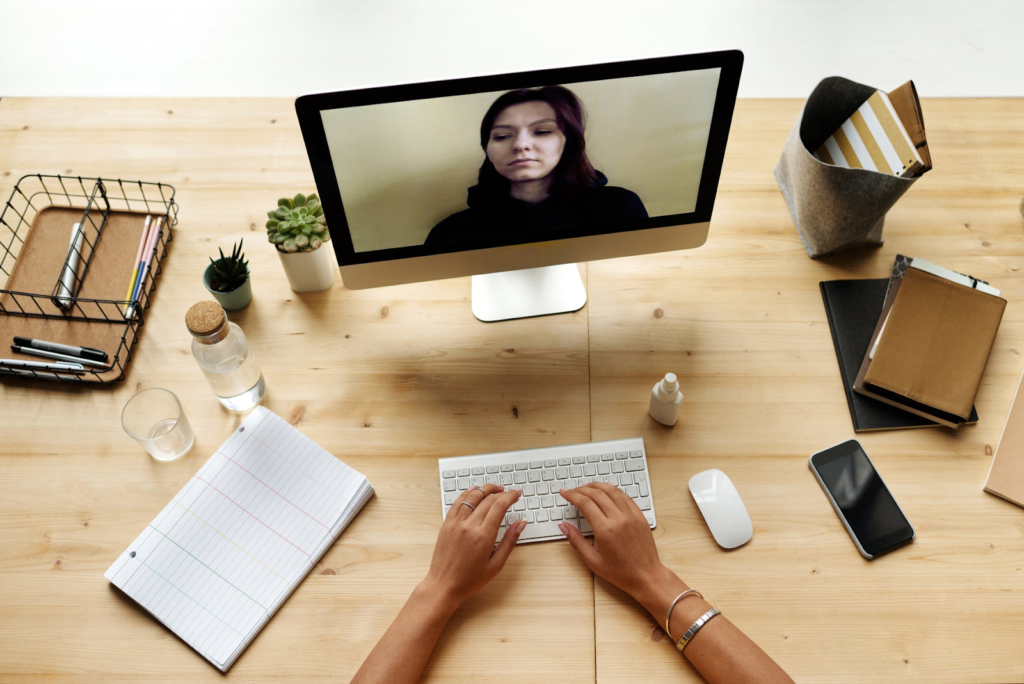With the rise in the number of COVID-19 cases, there is also a global rise in the number of workers from the OECD countries who work from home to reduce the spread of the virus through social distancing.
Remote work can sound attractive, with not having to go to the office, saving time and money commuting to work, and the potential of work from the comfort of your bed. However, working from home can be more stressful than one might expect.
Possible Risks of Working from Home
Lack of Communication and Loneliness
Despite virtual meetings, people are likely to engage in less communication when working from home, and experience loneliness. It could be that some people are not familiar with digital communication, or that some people just prefer in-person interaction. Casual talks, or the so-called “water cooler conversations,” are also harder to replicate virtually.
Heavier Workload and Burnout
Maintaining a good work-life balance can be hard, especially when working from home. Contrary to popular belief that remote work would produce higher job satisfaction, research shows that it may lead to higher levels of stress and burnout from work. Many people express that working from home leads to interruptions from family members and having to take care of both work and home duties simultaneously.
The blurred line between workplace and household work can cause people to be unable to stop working appropriately, even when working hours are over, which leads to burnout.
Procrastination
It is also easy to get distracted when you work from home because you are either too comfortable or get interrupted with other work going around in the house. There is less supervision or support from colleagues when working from home, which can lead to procrastination.
Although there are downsides to working from home, there are ways to make remote work a better experience.
Ways to Combat the Risks
Intentional Contact
The act of leaving one’s home and spending time out of our home, even at the workplace, can lead to many unplanned interactions in the outside world. When we work at home, the number of such interactions will likely decline greatly. Due to this, it is important to be more intentional and purposeful with our social contact.
We may need to be more proactive than we are used to, or put ourselves out there and be more vulnerable than we are comfortable being (such as asking a friend to chat online or meet up outside). Intention contact can be a great opportunity for you to reflect on meaningful relationships in your life and to take more time than normal to reach out and say hello.
Work Design
Work design is used as the range of motivational, knowledge, social, and physical work characteristics that predicts desirable outcomes from the employee, such as better performance and job satisfaction. If remote work is designed to provide psychosocial support to employees by having them engaged even in casual conversations in a virtual setting, loneliness can be reduced.
Through increased communication, employees can help each other with tasks so that they do not overwork and burnout. Research also shows that employees who received supportive work design were more likely to be committed to their organization, return the favor they received with hard work, procrastinate less, and have higher job satisfaction.
Self-Discipline
Having self-discipline is an important factor for success in remote working environments where there is less direct supervision and accountability. Even if the work design of a company is very supportive, if the employee does not have self-discipline to utilize the resources for support, the feeling of loneliness, being overworked and burnt out, and procrastinating can still linger.
Mental contrasting with implementation intentions is a strategy that can be utilized to improve self-discipline. This strategy is done by contrasting your dreams about a desired future with reflections about obstacles that prevent the realization of such desired future. When the desired future is framed and contrasted with the present reality, self-discipline can be increased by identifying the obstacles of reality and acknowledging that commitment and actions need to be taken to realize the desired future.
If you are an employer or an employee who is in a remote working environment, checking whether your company has a system of providing psychological support to those working from home will be helpful for workplace productivity.
Below is a list of suggested actions for psychological support that the workplace can provide to employees during the pandemic from the International Labour Organization (ILO)
-
- Integrating psychological support into the workplace.
- Having a buddy system to monitor stress and burnout.
- Paying attention to workers with pre-existing psychological conditions.
- Having stress reduction/self-calming techniques, such as using meditation apps.
- Guide employees to psychosocial support services and counseling programmes.
- Maintaining confidentiality about the services provided to individual workers.
Do you feel tired and stressed from working remotely due to social distancing caused by COVID-19? If you would like to know more about the ways to overcome the COVID-19’s impact on psychological well-being, please check out our blog post on the 3 Ways to Overcome the COVID Blues for more information.


Recent Posts
General
Nurturing Mental Well-being into the New Year
As we embrace the New Year, it’s a good time to reflect on our mental health and well-being. Instead of [...]
Dec
General
Join Seoul Counseling Center: Make a Difference as an English-Speaking Counselor in Korea
Nov
General
Therapist Highlight: Susan Choi
This summer we sat down with Susan, one of our U.S. Licensed Marriage and Family Therapists (LMFT) to gain insights [...]
Jul
General
Adjusting to Life in Korea: Top 8 Solutions
Moving to a new country can be an exciting adventure, but it can also be a daunting experience. Korea is [...]
May